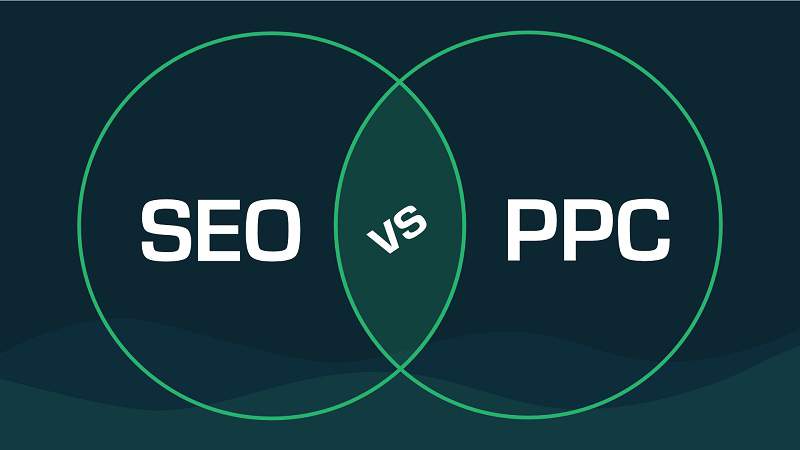Are you looking for SEM campaign, we like to think of Search Engine Optimisation (SEO) as being the strategic approach to online marketing and Pay Per Click (PPC) as being your quicl result mechanism.
When first embarking on a Search Engine Marketing (SEM) campaign, you may be confused about the difference between SEO and PPC and where you should allocate your marketing budget. Over 85% of Internet users will go to their favourite Search Engine first when looking for products or services, but 95% don’t look past the first three search results pages, so SEM should play an important part of your overall SEO marketing strategy.
What Are SEO and PPC Exactly?
With an SEM campaign, Search Engine results pages are divided into two main parts: organic SEO results and PPC advertising. Research shows that around 70% of Internet users click on SEO (natural or organic search) results and only 30% of users click on PPC (paid search results).
SEO or Search Engine Optimisation: This is the process or art of making a website achieve high rankings on Search Engine results pages (SERPS) for given keywords.
PPC or Pay Per Click: This is where an advertiser bids on keywords associated with an advertisement in order to achieve higher position on Search Engine results pages (sponsored links section) for searches on that keyword. Other options for advertising include Google’s display network (banner ads), remarketing (which serves ads to users who have previously visited your site), shopping ads (which appear as product listings next to a search result), and map ads (ads for physical locations delivered in the Google Maps tab).
What Are the Key Differences Between SEO and PPC in an SEM Campaign?
Position: SEO focuses on natural or organic search results which are displayed in the main body of the SERP. PPC listings are displayed as the ‘sponsored links’ on the top and bottom of the page (in addition to the other types of ads previously mentioned). Organic search results include all web pages which the search engine determines to be relevant to the query, while PPC reflects a targeted SEM campaign and may show results only in a specific geographic area, to certain audience demographics, or be time specific.
Promotion results: With an organic SEO campaign, a new website or Web page may take up to three months to show up on Search Engines as Google takes time to index and rank a site. However, SEO results in continuous traffic over a longer period of time. PPC can give an initial boost in traffic and is useful when launching a brand new website which is not yet appearing in organic results. However, when a PPC campaign is stopped and the budget is removed, any paid traffic stops immediately.
Perception: Organic ranking positions that happen as a result of an SEM campaign are seen to be unbiased and have a higher level of credibility. SEO rankings are unpaid and based on the relevance of the page to the keyword, but with PPC, the more you bid on a given keyword, the better your position in the search results. For both organic and PPC SERPs, a higher position is more trusted by searchers and will get more clicks.
Price: With an SEO and/or a PPC campaign, there may be an initial set-up and ongoing fee if you engage an SEO company or PPC specialist to create a campaign for your business. With an SEO campaign, there is no cost per individual click or visitor, only the costs incurred during the efforts of your in-house team or SEO vendor. However, with a PPC campaign, there is an ongoing cost per click or visitor – the greater your budget, the more traffic your website will receive.
Professional advice: Ideally as part of an SEM campaign, both SEO and PPC require an SEO expert or PPC specialist to manage the campaign and make sure that you have selected the best keywords within budget and your marketing campaign delivers the desired results. You can manage the campaigns yourself, but you cannot be assured that you will get the desired results.
Whether you choose to invest in an SEO or PPC program will ultimately depend on your marketing strategy. When launching a new website, you may need to see fast results and use a short term call to action PPC campaign but over the long term, an SEO strategy will return more money on your SEM investment.

